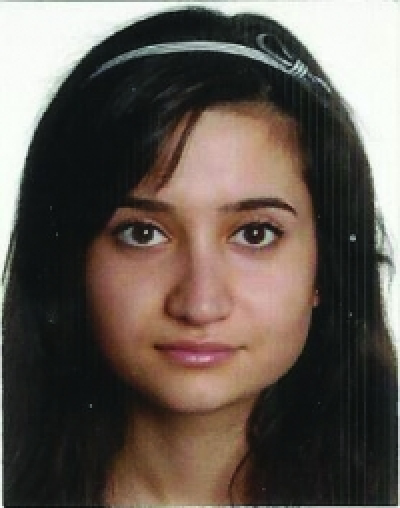
University of Flensburg MA European Studies
Introduction
Every day "the largest country in the world woke up with his name on the lips". Every day his name was sounded on the radio, heard in the songs, looked from the pages of all newspapers. His name as the greatest reward was appropriated to factories, collective farms, streets and cities(12. p.11). That name was the name of the world-famous dictator- Joseph Stalin. Stalin was the man who established an iron curtain from the Baltic to the Adriatic Sea. The Soviet Union became a major superpower with the potential of nuclear arsenal in 1949. So, that meant that he was a man who had brought the Soviet Union from the minor regional power in Europe to a global superpower (13).
Stalin was one of the most imperious dictators whom knew the world in the twenties century. The Soviet history necessarily includes the image of Stalin, which is remembered by his strong personality, unshakeable will, personal attitudes, iron character and constant fear associated with his name (1. p.X). Furthermore, his name also profoundly penetrated into the world history. Stalin's personality is shrouded by eternal mystery and incredible power of this man. Many politicians of his era remembered Stalin as the person who had some unimaginable and memorable inwardness. For instance, Winston Churchill remembered: "Stalin made the greatest impression on us...When he entered the hall of the Yalta Conference, all who were there got up as if on a command, and strangely- all kept hands at their sides". Once he decided not to stand up. Stalin entered and "some otherworldly force raised me from the place", - wrote Churchill later(12.p.12).So, Stalin's contemporaries remembered him as an inexplicable mystery. It is interesting that over so many years Stalin's personality, motives of his actions, even his death as well as his whole life still remain mysterious.
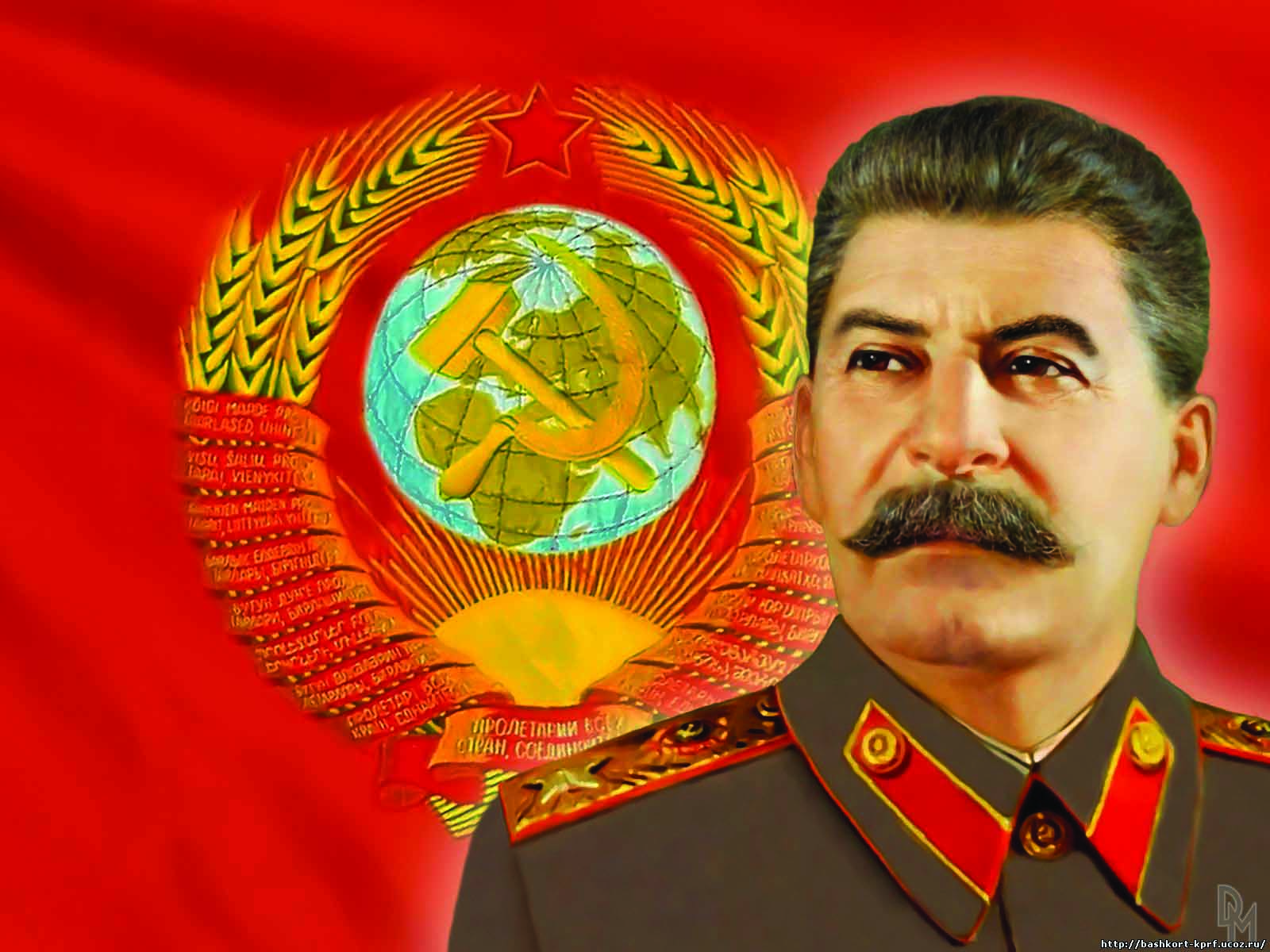
1.The roots of "evil"
1.1 Childhood years of little Soso
The phenomenon of Stalin did not emerge suddenly and unreasonably. He passed a long way during which various people and events influenced his character and formation as such person. His legend began with the transformation process from little Soso in Stalin. The initial stage of Stalin's life path, particularly hard childhood reveals much in the formation of such a cruel nature in this man. By other words, "the roots of evil" came from childhood and youth periods of Stalin's life.
Under the sky of 1878 in a small Georgian town Gory there was born Joseph Djugashvili, who left a substantial mark in the history. The man who later created his own era and became known to the world as Stalin, was at that time his mother's little "angel"- Soso (he was the third child eventually survived after the death of previous two children in their family). Future leader opened his eyes in a poor peasant family. His father- VissarionDjugashvili was an alcoholic shoemaker who laid the rudiments of his son's violence from the childhood. His mother Ekaterina Djugashvili, called as Keke was a religious woman who played a significant role in the destiny of her son. The family where little Soso grew up was quite troubled, that subsequently made an imprint on the formation of the boy. Always drunk father, poverty, hunger, constant scandals in the family, cruel beatings surrounded Soso since childhood (12.p.25). Joseph's mother wanted her son to become a priest and did her best for him to feel special. But at the same time, loving him crazily, she was a strict mother. She beat her son when he behaved badly despite her religious beliefs. But Keke's beatings were nothing in comparison with his father's. Drunken Vissarion beat him much harder because of every slightest antics. (3.p.15, 16).Their neighbours remembered cruelty with which Vissarion treated his son. Once Soso asked his father to give money for paints when Vissarion was drinking wine with friends. Firstly he angrily threw a coin at him, and when the boy asked for more money, father could not control his anger flung a hammer at son (1.p.3). Not only Soso, but also Ekaterina had been battered by her husband. There were a lot of rumours about infidelity of Keke and that Vissarion was not a real father of Stalin. Among the potential fathers of the future dictator were called the names of famous traveller Prjevalskiy and Egnatashvili- the representative of noble Georgian family who paid for the education of Stalin in seminary. However all these allegations were not proved by obvious evidences and nobody could confidently claim the opposite. Howbeit, it is supposed that this was the main reason why Vissarion treated Stalin and Keke so severely, beating them all the time and even calling Soso as a "nabichuari" ("bastard" in Georgian) (1.p.3). But despite the age little Soso took up to defend his mother during the beatings. Once during a routine hurting of his mother Soso took the knife and threw it at Vissarion trying to stop him. But when he missed, he feared for his own life and ran away and lived with neighbours afraid to come back home (3. p.16,17). There was another incident when drunken Vissarion raised his son and with force threw it on the floor. As a result, a boy had bloody urine for a few days. Thus, fist, violence and ruthless struggle saw Soso from childhood (12.p.32). Eventually that influenced his understanding of what was "normal" and what not in life. One his classmate I. Iremashvili remembered: "Ultimately, terrible beatings made a boy the same heartless and cruel as was his father. Since people who had authority over others due to their strength Stalin compared with his father, there was developed a sense of revenge in the boy's character towards all those people who had power over him in the future. From the youth period the realization of vengeful plans turned into his main aim, to which later were subordinated all his efforts" (11.p.23).From that time under the influence of experienced the word "Beat!"- entered his subconscious forever. In the future this word will be the most favourite during the fight against political opponents(12.p.32).
And one more ill feeling was embedded in him since childhood- Anti-Semitism. It is interesting that this feeling was extrinsical for the Caucasus. Researches remember one strange story from Soso's childhood. Once Joseph persuaded his friends to run a pig in a synagogue during the Mass. Even then he was already able to organize something "bad" and stay away not being punished. This fault of Soso was explained by the fact that he was taught to backlash from childhood. And he decided to exercise the most obvious thought of his mind at that time- to take revenge on the Jews (12.p.34). Strange for the Caucasus dislike of Jews originated from what he heard in the family.
Jews in Georgia were small traders, tailors and cobblers. Jewish shoemakers made perfectly Georgian boots for every taste. And Stalin's father hated them because they were wealthy and had excellent knowledge of their crafts. Thus, from early childhood drunken loser Vissarion instilled in his son the rudiments of malice toward this nation (12.p.33). Another reason for such dislike was poverty in which Soso lived with mother after leaving the father home. They needed money and Keke had to clean, sew and wash in houses of wealthy Jewish merchants. Soso went to work with his mother and even from early childhood felt himself slighted. He and his mother were poor. They had to do the dirty work while Jewish merchants were rich and lived in clover. To all these reasons was also added the feeling of jealous hurt in a boy. Dark rumors about his mother began to expand precisely after she started to work in the houses of the rich. Thus, the humiliation of his beloved mother, malnutrition and poverty in his childhood spawned in ill-ambitious boy hatred for the rich Jewish merchants. These moments were forever memorialized in Stalin's mind and till the end of his life the leader continued to settle scores with his poor childhood (12.p.33-34).Later, when Stalin was already in power he told to his old Jewish friend: "I have a great respect for you. But look, if you do not give up trade I will not spare you!"(12.p.34).
Another interesting distinctive feature of the "father of nations" which was also related to his childhood was his strange sense of humor. There are a lot of various stories about Stalin's horrendous sense of humor. According to one of them it happened after the victory over Germany, when one of the generals reported to Stalin on the situation. The leader listened and even nodded approvingly. But finished the report, the captain somehow hesitated. Stalin noticed it and asked if he had anything else. The man said he had a personal appeal. He brought some staff from Germany, but it was taken away in the checkpoint. And the military servant asked Stalin to help him to return snatched things. Stalin told the captain to write a report and said quietly that he would put resolution. After everything was done the man saw the resolution: "Return the colonel his staff. J. Stalin". When the military politely said that he was Colonel-General, not Colonel, Stalin dryly replied: "No, it is correct, comrade Colonel..." (15). The possession by the leader of such "unusual" sense of humor is also associated with his childhood. Doctors believe that in the early age Stalin suffered a stroke, which resulted in the reduction of the left frontal lobe of his brain where naturally higher mental functions are localized. And by that biological trauma of childhood many researches explain future "peculiarity "of Stalin's humor which was terrifying even the closest people around him (9.p.17).
1.2 School years: the end of Soso and the birth of Stalin
But in 1888 the childhood came to an end and began the period in a Church school of Gori. This period of Stalin's life also left a significant mark on the formation of his staunch and rigorous character. Stalin's mother played an indispensable role in her child's education. Keke who was doing everything in order to educate her son took a job as a cleaner in his school and houses of his teachers. However Stalin's father thought that his son's childhood had gone on for too long. Vissarion was going to take the son out of school and teach him the craft of shoemaker. He could not bear the thought that his son would be educated and become a priest. Beso wanted his son to work and earn money. Once their neighbours heard the quarrel between the spouses.Vissarion was shouting: "Do you want my son to become a metropolitan?! Over my dead body! I'm a shoemaker, and my son will be too! He will have to be and that is that!" (4.p.14). Soso remembered for the rest of his life his father's permanent fights with his mother. Beso came and drag Stalin by force to Tiflis indented to form a "real working man from him". Eleven years boy felt that his life was as in hell. But Keke did not give up. She travelled to Tiflis, fought against her husband, returned her son to Gori and restored him at school. This childhood psychological trauma coming out from unceasing cruelty, quarrels and beatings subsequently reflected in the character and nature of the future dictator (1.p.14-16). Drunkard Beso left his family only bitter memories, shame and hatred. As a result, over decades, Stalin forcedly staged scenes in which there were episodes of sons witnessed against their fathers and claimed harsh punishment for them. Stalin was praising such "strong" sons opposed their fathers. In fact by glorifying such sons, Stalin was glorifying his disadvantaged ego. In this and other events he reproduced brutal moments of his life, in such a way mentally revenging his father for childhood offences (1.p.6-7).
After returning from Tiflis Soso took the nickname "Koba". According to one version Koba was a name of hero- Georgian "Robin Hood", who revenged for the death of his friends. It was a name of hero, how Stalin considered himself. But according to another version, it was again because of his father. Children who suffered a lot from the cruelty of their fathers reject them and create a new origin for themselves, which they embody by adopting a new name. There is a rumor that after childhood trauma Soso rejected Vissarion as a father in his mind and by adopting a new nickname assumed an old friend of mother- KobaEgnatashvili as his new father. However, future dictator never explained the reason of change, but if young Soso decided to do something, he insisted to be called as Koba afterwards (1.p.7).
There are many stories about the years spent by Stalin in Gori School. Generally, in the Caucasus there was the custom to raise soldiers from boys since childhood. Stalin was also brought up by the society in such spirit. At that time the favourite game of Georgian boys was Creevy- collective childish box. As remembered Stalin's childhood friend Tsaridze: "Soso was one of the most skilful fighters. He could suddenly appear behind a strong opponent. However, other well-fed children were stronger than Soso. His friend Tsaridze invited Stalin to join his team. But Stalin rejected his offer, because in his own team he was a leader (11.p.23). As it can be seen the rudiments of leadership aspirations were inherent in him from adolescence. Another outstanding and at the same time terrifying feature of Stalin was his ability to subdue people. He organized the company of the strongest boys and called them- "the Three Musketeers", while he was D'Artagnan. In youth period these boys meekly obey orders of stunted D'Artagnan- Soso(9.p.26). As it is seen his physical weakness did not hinder him to be stronger than others and manage them. These qualities contributed to the fact that Stalin became one of the famous and frightening dictators of his time.
School teachers have also influenced the formation of young Soso's character. One Stalin's famous phrase: "If eyes are running, then the soul is not pure" dates back to the memories of his school years. An important mark in the psyche of the boy was left by one of his teachers- D. Hahutashvili. Students remembered his method of teaching for a lifetime. He introduced an iron discipline in the classroom. Hahutashvili used to say that: "If eyes are running, then you contrive abomination". Effect of gaze and fear of a man who cannot revert the eyes little Soso remembered forever. There was another teacher- Belyayev who also had an impact on the future nature of Stalin. Belyayev was a kind and gentle teacher. But the students were not afraid of him and therefore did not respect him. And this lesson Stalin remembered forever. In the future when he would be in power he would always remember and apply that rule: "to respect they need to fear" (12.p.37).
As it can be seen from the facts and memories described by researches and eyewitnesses, the childhood and youth years left a deep imprint on the future life of Stalin, initiating the increasing storm in his soul. It is appropriate to remember the proverb: "There is no smoke without fire". Of course, Stalin's character always included the "dark" side by nature, because if there were not certain rudiments there would not be any changes to the side of "evil". However, as it is said - "a child is a reflection of his family". And the formation of cruel Stalin was a vivid example of this. Cruelty, violence, beatings, quarrels, poverty, hard life certainly influenced the child psychology. And as he grew older and changed life conditions and people around him, Stalin also changed. School teachers, classmates and school spirit as a whole also influenced the formation of Soso's character. Thus, over time under such conditions little poor Georgian boy Soso turned to the world famous cruel dictator Stalin.
2. Legends and myths about Stalin
Despite the fact that even posthumously Stalin remains one of the most discussed and researched personalities, his life contains many secrets and mysteries till nowadays. The life of "great Vozhd" was shrouded in a mystery that has spawned a variety of myths and legends about him. Furthermore, Stalin played a significant role in the creation of myth and legends about himself. Not differed from his opponents by any special talents as a leader and mainly being a good administrator, Stalin created around himself an aura full of mystery and secrets, which encouraged interest in his personality. One of the keys to his success as a ruler of the country was the image of the "father of nation" created by himself. Even the birth of the future dictator was associated with the legend and mysticism in which he believed.
In Gori near the ruins of the castle there was a strange shape stone- like a huge round ball. The folk legend associated it with the giant Amiran which played with the stone like a ball. Amiran is a hero of Caucasian version of the legend about Prometheus. But according to the legend he was an evil Prometheus- a demon of destruction and Gods chained him to the top of the Caucasus to prevent the world from evil. There was an ancient custom in Gori. One night all blacksmiths pounded on the anvils in order to keep out the terrible spirit of destruction from penetration into the world. But vainly pounded smiths... In one of these evil nights there was born a man who would bring a lot of violence and death in this world. Later that boy would play with a globe like Amiran with a stone ball (12.p.30). Even the birth of the future dictator did not pass unnoticed. The birth of the boy precisely on that night kind of foreshadowed the world about a powerful storm named Stalin.
However it was not the only mystery related to his birth. The fact that Stalin changed the date of his birth was weird. For a long time that secret remained concealed and historians abled to get access to various church documents and other local archives only in 1990 (5.p.300). Certainly Stalin remembered his metrical day of birth because he indicated it correctly (1878) until the beginning of 20th century. However since 1917 in the party documents 1879 had appeared as the year of his birth. According to his christening records from the Church in Gori, IosifDzugashvili was born on 6 of December and christened on 17 December 1878. Other documents of Stalin's childhood and school years also confirmed the original date. The change of the birth date in official Party documents could be explained from one side by Stalin's aspiration in some way to distance himself from his modest beginnings. May be by that alteration he was trying to alienate the memories of his hard childhood not only in his own subconscious but also in the public mind (7.p.259).
But there is also another more interesting explanation of this fact. The researchers of Stalin's life said that he had a tendency to mysticism of numbers. According to Georgian-Persian count the number 5 was endowed with magical meaning. All that was a multiple of five should bring luck and happiness. In 1917 came the first five years after 1912- the year of Stalin's notable achievements. Since 1917 he was involved in the Revolution. Stalin strongly believed in the success of the Revolution. And when it happened he became even more confident in the idea of his happy five. In this regard, he collated the whole path traversed before the revolution with the idea of five-year. In 1889 appeared the publication of "Tiger skin" which in the opinion of some researchers helped Soso to choose a "strong" nickname. At that time he was exactly 10 years old. In 1899 he was expelled from the seminary and became a professional revolutionary. And at that time he was 20 years old. Therefore as considered Stalin it was much more correct to start counting from 1879 and not from 1878. Since he was separated from 1879 just by few days of the end of December and if mother denunciated him for another week, he formally and actually would have been born in 1879. For Stalin that half week had no value, because in fact for him the life began not with nearly passed 1878 but from the beginning of 1879. As he explained 1879 was the first full year of his actual life. In that alteration there was revealed dislike of Stalin to the formalism and his tendency to expediency. He did what he thought was necessary, what in his opinion was the most appropriate for common sense and not to bureaucracy and formality. Precisely from 1879 he considered the real number of lived years. Only then there was an appropriate count (9.p.11-12). Besides his dislike of formality, it should be also said that Stalin by that alteration wanted to create for himself an image of extraordinary and exceptional man, the important events of whose life happened according to the idea of magic five. Thus, he tried to present himself in the eyes of the people as a mystery possessing unusual strength.
Another widespread legend about Stalin was his ignorance. That myth of ignorant and provincial Stalin was for the first time created by Trotsky. Being Stalin's main opponent, Trotsky showed the ruler in the eyes of people as an uneducated and unintelligent man. He was lacking intellectual confidence of many of his colleagues in the Party. Besides that Stalin's voice people remembered as "toneless". He was not characterized by extraordinary oratory skills, he was reading from prepared speeches with rare pauses. All these characteristics had given a cause for assigning Stalin the image of an ignorant and unintellectual person. However, it should be noted that the dictator had a phenomenal memory. He remembered everything by exact dates. Furthermore, as it is described nowadays the library of dictator in 1930 contained 40,000 volumes and every day he spent a lot of hours reading (6). It is interesting that Vozhd loved poetry and even more he discovered in himself flair to poetry being under nickname Koba. According to the researchers of Stalin's life his ignorance was just a rumor. However, it is noteworthy that Stalin himself supported that myth. He as a ruler wanted to be considered as an ignorant person, a commoner, a man "from the plow", as a native to the people. For further strengthening of power, Stalin supported his image as an ignorant man, son of the man from lower classes in order to be "closer" to the ordinary people, to gain the trust of masses and manage them. Consideration of Stalin as an unintelligent "man from nation" also helped him in the struggle with the "intellectuals" in the Communist Party (10.p.36).
The question of the real role of Stalin in the October Revolution still remains as one of the most mysterious and most investigated by researchers. Views of historians on the outstanding role of Stalin in the victory of the October Revolution differ. Some of them confirm the active participation of Stalin in the revolution and claim that the victory of the revolution became real not only because of Lenin, but also Stalin. However, there are also a lot of other views considering the exaggerated role of Vozhd in the revolution.
Again Stalin's persona was shrouded in secrecy. It is interesting that his name was extremely rare mentioned in the revolutionary chronicles. It is considered that the active participation of Stalin in the revolution is an absolute myth. In the State Archive of the Russian Federation there are a lot of documents related to the October Revolution. In that documents there are mentioned all those people who took an active part in the revolution of 1917: Trotsky, Kamenev, Zinoviev, Sverdlov, Spiridonov, Mensheviks, and Socialist Revolutionaries. There was not only one person among them- Stalin. The drafters of the documentary collection about Stalin's life till 1917 found several strange facts. It is interesting that his figure disappeared in the most critical periods of history. For instance, during the revolution of 1905. It seems that certain periods are not in his biography. And in 1917 Stalin was not so much active. Even at one time in the Central Party Archive there was a joke: "Where was Stalin then? Stalin overslept the revolution!"(9.p.121).Thus there is a widespread version that Stalin's role in the October Revolution was greatly exaggerated. The myth about his active role in the Revolution was circulated by Stalin himself in order to open the way for him to the leaders of the Revolution. Again here are traced his attempts to create the best and advantageous image as a ruler. The fact that many documents were destroyed under Stalin is also a proof of this. A lot of manuscripts, correspondence, photographs, and government documents perished in that bloody years when Stalin's reign liquidated everything which did not correspond his falsification of the history (2.p.VIII).
A lot of people thought that Stalin never was helpless, that he always knew how to act. But as told politicians of his time it was not exactly so. Stalin's personal secretary and party member Boris Bazhanov in his notes stated that Stalin was a very cautious and indecisive, but did not show it (14). He was trying to match the chosen name- the" man of steel".
Thus, as it is seen Stalin was always able to stir up interest in his persona. During his life as well as after his death, the great Vozhd has been one of the most mysterious but at the same time most discussed personalities.
Conclusion
Today we know - Stalin would not be that Stalin if he had not used violence as an important tool to achieve his political goals. Violence has become one of the means of implementing of Stalin's socio-economic plans and programs. Stalin was a man with various faces and those faces changed when it was needed. Cruelty of Stalin was one of his characterizing features as a powerful dictator. But as a proverb says: "every coin has two sides". Stalin's brutality, ruthlessness, willingness to send people to massive repressions in the name of his fame and power had been formed over time under different circumstances. Hard and poor childhood, beatings and cruelty by his father, school years and painful memories had left their mark in the formation of leader's "strange" consciousness. They put the foundation of turning the boy from little Soso to Stalin and becoming famous despot and dictator in the future. In the formation of Stalin's character his mother played a significant role. Despite hard childhood Stalin's mother instilled in him a constant striving for success that she did not experience on her share. As a result, in Soso was formed the feeling of the winner and confidence in success (9.p.18). Ultimately Stalin looked at the society as a human aquarium- everyone was in his power. As the boy had seen permanent cruelty from childhood, it became normal for him to be also brutal in life and in office. Thus, behind murderous cleanings, mass deaths and cruelty of his reign there were personal motivations coming from hard moments of transformation of Georgian boy to Soviet ruler.
Interest in the persona of Stalin never waned and after his death omnifarious research about his life was intensified. Status of dictator and the "father of the nations" had spawned a lot of legends and myths about him. Some were expanded by Stalin himself deliberately to create an image which was necessary for him to manipulate and manage people. Others were created by his opponents to affect the deterioration of peoples' relation to him. The image which was created by Stalin himself entrenched in people's minds for a long time. At some stage, Stalin was seen by millions of people not like a man in the flesh, but as a symbol of socialism, its living embodiment. The deification of "great Vozhd" justified in the eyes of the people all the negative effects due to the intrigues of the enemies and on the contrary attributed all the success to the mind and the will of one person- Stalin.
Thus, the way of one of the famous dictators in the world was not cloudless and easy. He was forever immortalized in the memory of people even after his death. Being a young Soso he was unaware of the role that he would play in the lives of many people. But from that time the boy had inexhaustible feeling of striving forward, self-confidence, feeling of the aggrieved person and increasing cruelty that ultimately turned him into a" man of steel".
Bibliography
English
1. Brackman, Roman. The Secret File of Joseph Stalin: a Hidden Life. UK: Taylor and Francis e-library. 2005.
2. Bukharin, NikolaĭIvanovich, Shriver, George. Cohen, F. Stephen. How it all began. The prison novel. USA: Columbia University Press. 1893
3. Haugen, Brenda. Joseph Stalin: Dictator of the Soviet Union. USA: Compass Point Books. 2006
4. Kun, Miklós. Stalin: An Uknown Portrait. Hungary: Central European University Press. 2003
5. Medvedev, Zhores A., Medvedev, Roy Aleksandrovich, Dahrendorf, Ellen .The Uknown Stalin. London: I. B. TaurisandCo. Ltd. 2003.
6. Overy, Richard. The Dictators: Hitler's Germany and Stalin's Russia. London: Penguin group. 2005. Retrieved from: http://books.google.de/books?id=32Vy2Fj4KFUC&pg=PT22&lpg=PA1&dq=richard+overy+Dictators
:+Hitler%27s,+Stalin%27s+Russia&hl=ru
7. Rappaport, Helen. Josef Stalin: a Biographical Companion. USA: ABC-CLIO Ltd. 2000.
8. Ulam, Adam Bruno. Stalin: The Man and His Era. New York: The Viking Press. 1973.
Russian:
9. Гусляров, Е. Н. Сталин в жизни. Систематизированный свод воспоминаний современников, документов эпохи, версий историков. Москва: ОЛМА-ПРЕСС. 2003
10. Кормилицын, Сергей. Сталин противГитлера: поэт против художника. Питер: Питер Пресс. 2008.
11. Прудникова, Елена. Сталин. Второе убийство. Санкт-Петербург: Издательский дом Нева. 2004
12. Радзинский, Эдвард. Сталин: жизнь и смерть. Москва: АСТ. 2007
Internetlinks:
13. JosephStalin- MiniBiography.
http://www.biography.com/people/joseph-stalin-9491723/videos/joseph-stalin-mini-biography-2232250110
14. Иосиф Виссарионович Сталин. http://www.molomo.ru/myth/stalin.html
15. Мифы биографии Сталина. Журнал " Дом Солнца ". http
://www.sunhome.ru/journal/518390
Strategiya.az
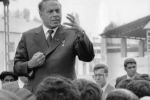
HEYDƏR ƏLİYEV - YENİ MİLLİ İNTİBAHIN VƏ MÜSTƏQİL DÖVLƏTÇİLİYİN ƏSASINI QOYMUŞ TARİXİ LİDER

Müasir dövrün qlobal problemi iş şəraitində mobbinq ve mübarizə yolları
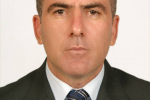
Azərbaycan Respublikasında Dövlət Qulluğunun Təkmilləşdirilməsi İstiqamətləri
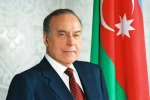
HEYDƏR ƏLİYEV - MÜASİR AZƏRBAYCAN TARİXİNİ YARADAN LİDER
Xarici valyutaların manata qarşı bugünkü məzənnəsi
Ceyhun Bayramov ölkəmizin Avropanın enerji təhlükəsizliyində mühüm rol oynadığını bildirib
İmtahanın nəticələri ilə əlaqədar müraciətlərə baxılması üçün Apellyasiya Şurasına ərizə qəbuluna başlanılıb
Xarici işlər naziri Ceyhun Bayramov NATO-nun Baş katibi Yens Stoltenberq ilə görüşüb
Avropa İttifaqı münaqişədən sonrakı dövrdə mühüm rol oynayır - Ceyhun Bayramov
"Qarabağ" İsveçrə çempionuna qalib gəldi
Tehranda Rusiya və Türkiyə prezidentlərinin görüşü olub
Ceyhun Bayramov Gürcüstanın Baş naziri ilə bölgədə sülh prosesini müzakirə edib
Mikayıl Cabbarov: Sənaye zonalarında istehsal 53 faiz, ixrac isə 2 dəfə artıb
Ağalı kəndinə köçürülən ailələrin tibbi müayinələrinə başlanılıb
Prezident İlham Əliyev: Bizim Xəzər dənizi kimi çox nəhəng bir enerji mənbəyimiz var
Qubada içərisində 125 min manat olan seyf oğurlanıb
İrəvan Dövlət Azərbaycan Dram Teatrının 140 illiyi qeyd edilləcək - SƏRƏNCAM
Azərbaycan tarixinin şanlı səhifələrindən biri - 14 iyul 1969-cu il
Şuşada Vaqif Poeziya Günləri başlayıb
Təhsil Nazirliyi: 204 məktəbdə elektron jurnal və gündəlik sistemi tətbiq edilib
Təhsil Nazirliyi məlumat yaydı
FHN: Zəngilan rayonunda ağaclıq ərazidə baş verən yanğının tam söndürülməsi istiqamətində tədbirlər görülür
Azərbaycan neftinin qiyməti 114 dolları ötüb
Azərbaycan Ordusunun əsgəri həlak olub
Baş Prokurorluq rəis müavininin intiharı ilə bağlı məlumat yaydı
Respublika üzrə pensiyaların iyulun 15-də tam ödənilərək yekunlaşdırılması nəzərdə tutulub
Qızıl təpə abidəsində arxeoloji tədqiqatlar davam edir
Azərbaycan neftinin bir bareli 113,91 dollara satılır
Bakı-Tbilisi-Ceyhan neft boru kəmərinin tam istismara verilməsindən 16 il ötür
Partlayış zamanı “Baktelecom”un rabitə infrastrukturuna ziyan dəyməyib
Dünyada "Premium Euro-95" benzinin bahalaşması gözlənilir - Azərbaycana necə təsir edəcək?
Azərbaycan nefti ucuzlaşıb
Böyük Britaniyanın yeni baş nazirinin adı sentyabrın əvvəlində açıqlanacaq
Tovuz döyüşlərindən iki il ötür
Bakının mərkəzində partlayış baş verib
Cüdoçularımız Xorvatiyada Qran-Pri turnirində iştirak edəcəklər
Ərdoğan yaxın zamanda Venesuelaya səfər edəcək - Maduro
Türkiyə və Ukrayna prezidentləri arasında telefon danışığı olub
Xaçmazdakı meşə yanğınının söndürülməsinə iki helikopter və amfibiya tipli təyyarə cəlb olunub
Ərdoğan və Paşinyan arasında telefon danışığı olub
Saatlı stansiyası yaxınlığında qəzaya uğrayan qatar Gürcüstana məxsusdur - ADY
FHN Xaçmazdakı meşə yanğınları ilə bağlı məlumat yayıb
Vahid əlaqələndirmə mərkəzlərində 41 min şəxsə xidmətlər göstərilib
Kino Agentliyi Mədəniyyət Nazirliyinin tabeliyində olan qurumların siyahısına əlavə edilib
Gələn ilin sonunda Şuşa ilk sakinlərini qəbul edəcək - Aydın Kərimov
Azərbaycan Ordusunun hərbçisi həlak olub
DİN: Ötən gün ölkə ərazisində qeydə alınan cinayətlərdən 52-nin açılması təmin olunub
Xocavənd rayonu ərazisində yeni hərbi hissənin açılışı olub
Birinci vitse-prezident Mehriban Əliyeva Qurban bayramı münasibətilə xalqımızı təbrik edib
Abeyə atəş açan şəxs əməlinin səbəbini açıqlayıb
Zakir Həsənov Qurban bayramı münasibətilə Azərbaycan Ordusunun şəxsi heyətini təbrik edib
XİN Azərbaycanın diplomatik xidmət orqanlarının əməkdaşlarını peşə bayramı münasibətilə təbrik edib
Bu gün Azərbaycanda Qurban bayramı qeyd edilir
Bərdədə avtomobil yolunun tikintisi ilə bağlı 3,1 milyon manat ayrıldı - SƏRƏNCAM